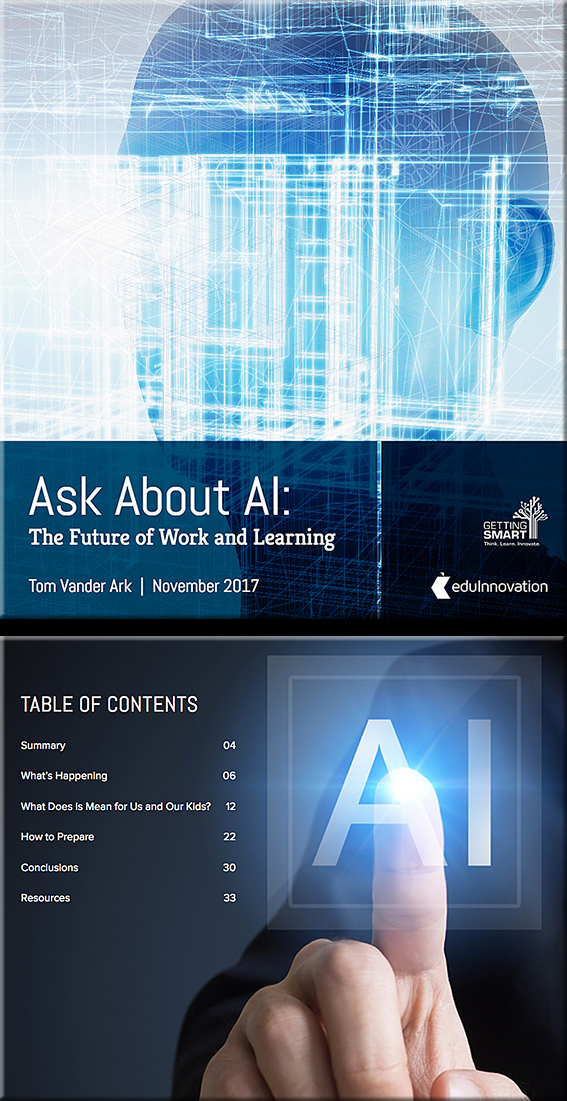Ask About AI: The Future of Learning and Work — from gettingsmart.com by Tom Vander Ark
Excerpts:
Code that learns may prove to be the most important invention in human history. But in 2016, there was almost no discussion of the implications of artificial intelligence (AI) in K-12 education—either the immense implications for the employment landscape or the exciting potential to improve learning.
We spent two years studying the implications of AI and concluded that machine intelligence turbocharged by big data and enabling technologies like robotics is the most significant change force facing humanity. Given enormous benefits and challenges we’re just beginning to understand, we believe it is an important time to Ask About AI (#AskAboutAI).
…
After interviewing experts, hosting a dozen community conversations, and posting more than 50 articles we’re summarizing what we’ve learned in a new paper Ask About AI: The Future of Learning and Work.
The paper explores what’s happening in the automation economy, the civic and social implications, and how to prepare ourselves and our children for exponential change.
With this launch we’re also launching a new microsite on Future of Work.
To initiate lifelong learning, secondary schools should encourage students to be reflect on how they learn, and build habits of success. There are an increasing number of organizations interested in being lifelong learning partners for students—college alumni associations, professional schools and private marketplaces among them.
Self-directed learning is most powerfully driven by a sense of purpose. In our study of Millennial employment, Generation Do It Yourself, we learned that it is critical for young people to develop a sense of purpose before attending college to avoid the new worst-case scenario—racking up college debt and dropping out. A sense of purpose can be developed around a talent or issue, or their intersection; both can be cultivated by a robust guidance system.
We’ve been teaching digital literacy for two decades, but what’s new is that we all need to appreciate that algorithms curate every screen we see. As smart machines augment our capabilities, they will increasingly influence our perceptions, opportunities and decisions. That means that to self- and social awareness, we’ll soon need to add AI awareness.
Taken together, these skills and dispositions create a sense of agency—the ability to take ownership of learning, grow through effort and work with other people in order to do the learning you need to do.









